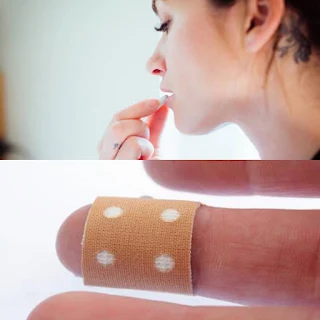It is generally not recommended to take medication on an empty stomach, as we are often asked to eat before taking any type of medication.
But what we eat has a big impact on how our bodies process medications. Some foods can enhance a drug's effectiveness, while other foods can reduce it. The combination of some medications and foods may even cause blood clots or liver damage.
It is important to read the medication instructions before starting to take it to check any foods that it is recommended not to eat.
Here are five foods that you should never mix with certain medications to avoid unpleasant complications.
1. Grapefruit and statins
Statins are medications that lower levels of low-density lipoprotein cholesterol, also known as "bad cholesterol," in the blood.
They include medications, such as: Lipitor, Lescol, Lipostat, Crestor, Zocor. Experts warn that you should avoid eating grapefruit and grapefruit juice at all costs if you are taking Lipotor or Zocor, "because it can increase the risk of side effects."
Side effects of statins can include muscle pain.
“Grapefruit contains a group of chemicals called furanocoumarins that disrupt the time it takes the body to break down the drug,” Shamir Patel, pharmacist and founder of Chemist4U, previously explains. “They prevent some enzymes from working, which can result in the body absorbing more of the active drug than the intended dose.” “Other citrus fruits, including lemons, limes and Seville oranges, are also thought to have the same effect.”
Grapefruit can also amplify the side effects of some blood pressure medications and some psychiatric medications, according to the results of one study.
2. Dairy and antibiotics
A study said that dairy products, such as: milk, cheese, and yogurt can interfere with the absorption of tetracycline and quinolone antibiotics.
Calcium binds to the antibiotic in the digestive system, reducing its absorption and effectiveness. To avoid this, it is best to take antibiotics a few hours before or after eating dairy products.
Meanwhile, Shamir said one should be careful about eating ripe and aged cheeses and meats when taking monoamine oxidase inhibitors to treat depression.
He explained that aged and smoked foods, including salami and pastrami, contain an amino acid called tyramine. Pointing out that "monoamine oxidase inhibitor drugs, which are prescribed for conditions such as depression and chemotherapy, reduce the body's ability to process tyramine. This exposes you to the risk of side effects including a sharp increase in blood pressure, chest pain, and rapid heartbeat."
3. Leafy vegetables and blood thinners
If you take blood-thinning medications such as warfarin, it's a good idea to pay attention to how many leafy greens you eat.
Foods such as spinach, kale, and broccoli are touted for their health benefits, as they are rich in vitamin K, which plays a role in how blood clots.
“Cabbage, along with other green leafy vegetables such as spinach and lettuce, can reverse the effects of anticoagulant medications such as warfarin, which increases blood clotting,” Shamir said. Experts advise that you do not have to avoid eating these foods completely if you are taking warfarin. Just don't eat too much of it."
4. Alcohol and painkillers
Certain medications, such as antibiotics, should never be taken with alcoholic beverages.
It is also noted that some painkillers, antidepressants and diabetes medications can also cause a range of complications when they interact with alcohol.
The results of a study said that these interactions can lead to dizziness, drowsiness, liver damage, and other serious complications.
Experts warn that you should never mix alcohol with the antibiotics metronidazole and tinidazole, or monoamine oxidase inhibitor (MAOI) antidepressants.
Experts explained that drinking alcohol within low-risk drinking guidelines while taking a standard dose of most over-the-counter painkillers such as paracetamol and ibuprofen is unlikely to cause any problems. However, alcohol should be avoided if you are taking prescription-only pain relievers, such as tramadol, gabapentin, codeine and other morphine-like medications.
5. Coffee and antipsychotics
Antipsychotic medications can help treat people with schizophrenia, bipolar disorder, and major depressive disorder.
But taking these pills with caffeine, in the form of tea or coffee, can make the body absorb a smaller amount of these medications compared to taking them with water, according to the Health website.
Meanwhile, studies have said that caffeine can increase the side effects of some antipsychotic and ADHD medications, leading to increased heart rate and blood pressure.
Russia : innovation of an adhesive tape that speeds up wound healing
Scientists at Maikop State Technological University have obtained a patent for an adhesive tape that has proven effective in healing wounds, based on pectin and collagen.
The university's media office indicates that this tape is even useful in healing old wounds and accelerating regeneration processes, as well as preventing secondary infection of the wound. The tape was successfully tested in Adygea Hospital under the supervision of specialized doctors and surgeons.
The office statement said: “When the tape is stuck to the wound, it is completely isolated from the medium, and the antibacterial and anti-oxidant properties of pectin help clean the wound. Collagen also promotes the accelerated formation of granulation tissue, aloe vera is an analgesic and antiseptic and promotes tissue regeneration, while glycerin provides plasticity, which Allows tape integrity to be maintained during use.


Good
ReplyDelete